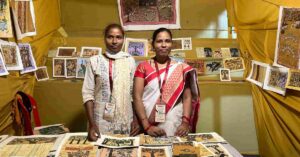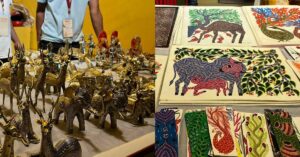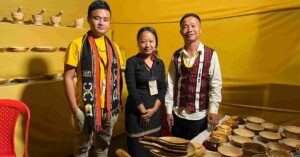Saving Lives For Years: This Ancient ‘Snake’ Tribe Makes Most of India’s Anti-Venom!
The Irula Snake-cooperative has revolutionised the treatment of snake-bites in India and produces enough anti-venom to supply hospitals across the country.

The Irula tribe, one of India’s oldest indigenous communities, lives along the borders of Tamil Nadu and Kerala. Irulas are specialists in traditional herbal medicine and healing practices, and Irula ‘vaidyars’ (practitioners of any Indian systems of medicine) are mostly women and practice traditional healing systems which use over 320 medicinal herbs.
Along with their knowledge in medicine, their skill at capturing snakes, especially venomous ones, is almost legendary.
According to this report, for a large part of the 20th Century, tens of thousands of Irulas made a living by hunting snakes for their skins. Out of reverence to their main deity, a goddess named Kanniamma who is deeply associated with the Cobra, they wouldn’t eat the meat, but sell it to tanners who would process and export it to Europe and the USA.
However, in 1972, the passing of the Wildlife Protection Act, effectively banned the hunting of several animals, including snakes, because of which the Irulas were left with no source of employment.

Across the world, about 30,000 to 40,000 people die annually of snake bite, and of these, 25% or about 10,000 people die in India. Anti-venom serum is made by immunising horses with gradually increasing doses of snake venom, which, in turn, is always in high demand because it is the most effective cure to treat potentially fatal snake bites. Here, it is also important to note that large numbers of snakes are needed to collect venom in the quantities required for anti-venom production.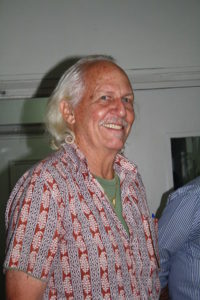
Romulus Whitaker, the renowned herpetologist and wildlife conservationist, has worked with the Irulas for nearly 50 years and was aware of their skills, as well as the problems being faced by the Irulas.
He decided to set up a cooperative, named the Irula Snake-Catchers’ Cooperative, on the outskirts of Chennai in 1978, where their knowledge would be used for the conservation of snakes and production of snake venom.
According to this report, since its inception, the Irula Snake-cooperative has revolutionised the treatment of snake-bites in India and produces enough anti-venom to supply hospitals across the country.
But it is definitely not an easy job, and the snakes need to be handled carefully. The Irulas find snakes mainly by looking for tracks and other signs like faeces and shed skins at rat holes, termite mounds and dense hedgerows.

They dig out the snakes with short crowbars, pin them down and bag them. They usually get one to three large snakes in a good day’s hunt, and only bring in healthy adult snakes.
Once captured, the snakes have to be looked after carefully as they only last a few weeks in that state. This is why they are kept in captivity just for three weeks, and three to four venom extractions take place during that time. Later, they are released in the forests surrounding the agricultural land of the Irulas.
Surveys maintained by the project indicate that the survival rate of the released snakes is very high. In 1991, a brief pilot study was carried out, where snakes that had been released, were marked with fluorescent paint marks on their backs so that they could be monitored.
The study found that all except one snake, which was found dead, had found shelter in the forest or even migrated.
During the past 15 years of the project’s existence, the Irulas have learned to optimally manage the cooperative and undertake all the work—from the skilled and dangerous job of capturing the snakes and extracting their venom to operating the state-of-the-art lyophilizer (freeze drier) which processes it.
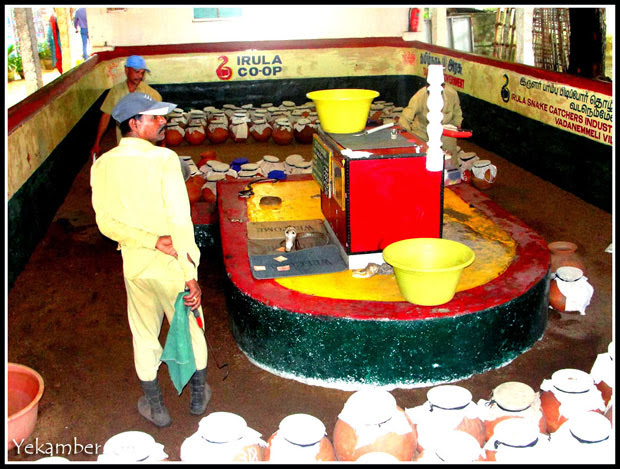
The cooperative is now the largest producer of venom in India, and an exceptional example of traditional knowledge being used to advance fields like medicine. Additionally, by making it possible for snake venom to be readily available, an indigenous community is doing the entire country, a great service.
(Edited by Gayatri Mishra)
Hey, you may also like: Ancient Tamil Nadu Made the Finest Steel In The World: Research Reveals Fascinating Facts!
Like this story? Or have something to share?
Write to us: [email protected]
Connect with us on Facebook and Twitter.
This story made me
- 97
- 121
- 89
- 167
Tell Us More
We bring stories straight from the heart of India, to inspire millions and create a wave of impact. Our positive movement is growing bigger everyday, and we would love for you to join it.
Please contribute whatever you can, every little penny helps our team in bringing you more stories that support dreams and spread hope.






